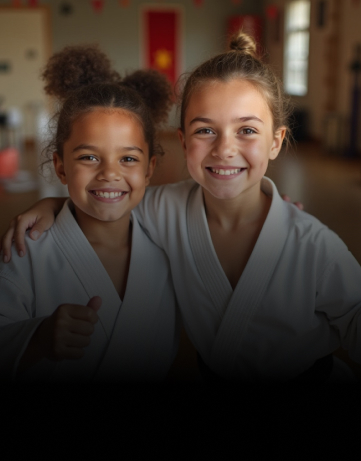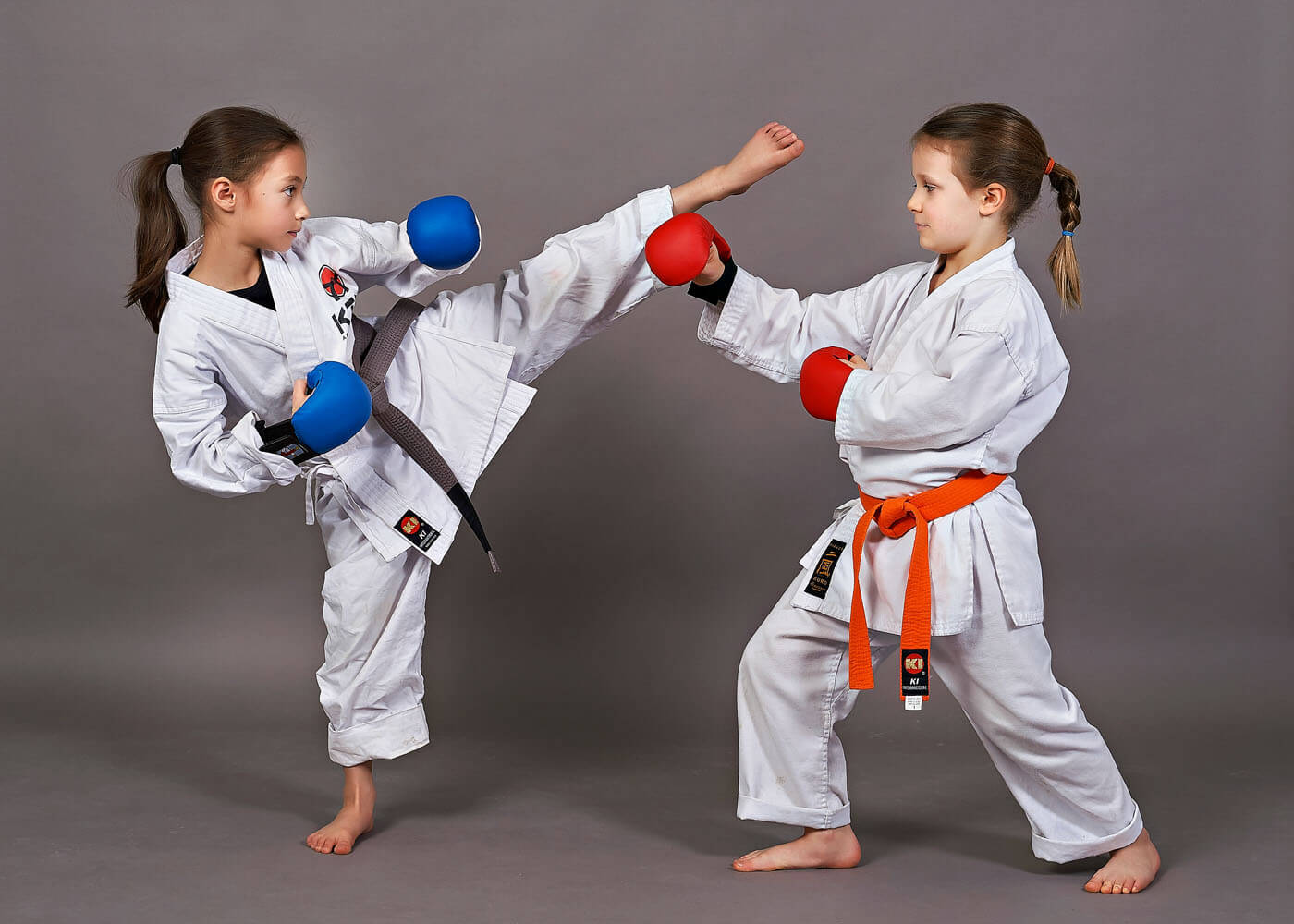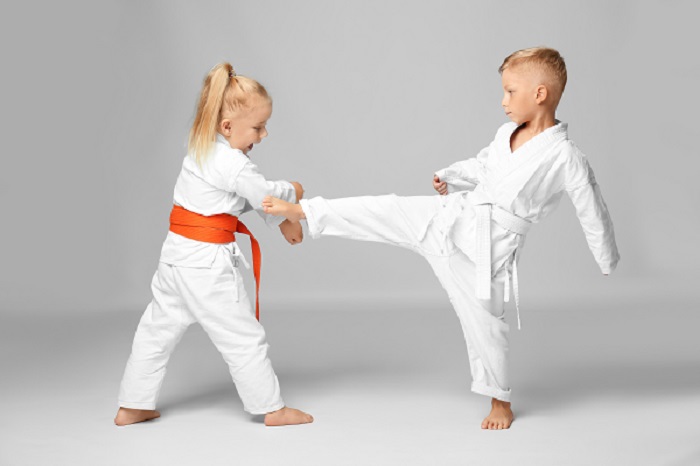Exactly How Karate for Kids Can Increase Confidence and Discipline in Youthful Martial Artists
Karate for children uses an unique opportunity to develop confidence and self-control in young martial artists. As they find out new techniques and face challenges, they not only gain skills however additionally establish a strong sense of self-regard. This organized atmosphere encourages them to value the trip of improvement. However how does this training translate into their daily lives? Discover the much deeper connections that make karate greater than just a sport.
The Significance of Confidence in Youth Growth
Confidence is an essential foundation in childhood years advancement. When you nurture your kid's self-confidence, you equip them to deal with obstacles, take dangers, and share themselves openly. Children with confidence are much more ready to explore social situations and brand-new tasks, which can cause enduring friendships and valuable experiences.Encouraging your youngster to step out of their comfort zone cultivates durability. They discover that failure isn't the end however rather a tipping rock to success. By celebrating their accomplishments, no issue how small, you help them recognize their capabilities and worth.In this journey, assistance and positive reinforcement from you play a vital role. Whether it's through praise or just being present, your participation increases their confidence. As they expand, this self-assurance comes to be a long-lasting asset, furnishing them to browse both challenges and chances with a solid feeling of self.
Exactly How Martial Arts Teaches Self-control and Focus
Martial arts assists you build technique and emphasis through its organized training routine. As you exercise mindfulness during each session, you'll learn to concentrate far better both on and off the mat. And also, establishing and accomplishing goals in karate strengthens your capacity to stay alert and dedicated.
Structured Training Program
While you involve in karate training, you'll quickly find how a structured routine imparts self-control and focus in young practitioners. Each course follows a specific style, including warm-ups, method practice, and sparring. This uniformity educates you to commit and respect the process to enhancement. As you discover techniques and kinds, you develop a feeling of duty for your own progress.The organized environment urges you to establish objectives, whether mastering a new belt or perfecting a kata. You'll find that remaining focused during courses and drills develops your focus. The discipline you cultivate in karate extends beyond the dojo, positively impacting your schoolwork and daily regimens. Each session strengthens the value of dedication, helping you turn into an extra disciplined person.
Mindfulness in Practice
As you practice karate, you'll locate that mindfulness ends up being a crucial part of your training. Each relocation requires your complete interest, assisting you stay concentrated on the present minute. You'll find out to ignore distractions and concentrate on your breathing, motions, and purposes. This increased understanding sharpens your reflexes and enhances your discipline.During sparring or types, you'll discover the value of being psychologically existing - Karate Salisbury MD. You'll discover how this focus not just boosts your technique however additionally builds your self-confidence. By practicing mindfulness in martial arts, you grow perseverance and durability, vital attributes that expand past the dojo. In this means, martial arts educates you to harness your mind, assisting you create a disciplined approach to obstacles both on and off the floor covering

Objective Setup Techniques
Establishing objectives in karate isn't just concerning earning belts; it's an effective means to grow discipline and emphasis. When you set particular, achievable targets, you create a roadmap for your progression. For example, instead of simply aiming to improve your kicks, try concentrating on mastering a particular method monthly. This strategy keeps you determined and engaged.Breaking down bigger goals right into smaller, workable steps aids you track your development and celebrate little triumphes in the process. Whether it's developing your position or boosting your sparring endurance, every objective reinforces your dedication. As you attain these objectives, you'll build self-confidence in your abilities and develop a solid feeling of self-control that expands past the dojo into daily life.
Structure Resilience Via Martial Arts
Fighting style, especially karate, offers children an one-of-a-kind possibility to construct resilience in a supportive atmosphere. In courses, they face challenges that press their restrictions, whether it's grasping a brand-new method or competing with a companion. Each obstacle, like a missed out on kick or a lost suit, comes to be a chance to discover and grow.As they practice, kids learn to welcome discomfort and keep trying, also when points get challenging. They uncover that failing isn't completion; it becomes part of the journey. This state of mind aids them recuperate more powerful, not simply in the dojo, yet in everyday life.With each difficulty they overcome, your child builds self-confidence in their capacity to tackle challenges, fueling their decision. Via karate, they'll understand that resilience isn't simply concerning physical strength; it has to do with psychological grit and perseverance, encouraging them to deal with whatever life throws their means.
The Function of Regard in Martial Arts Training
Regard is a foundational concept in karate training, fostering a culture of self-control and camaraderie among trainees. When you tip onto the dojo flooring, you're not simply discovering methods; you're likewise finding out to appreciate your trainers, peers, and the art Visit Website itself (Karate Salisbury MD). Bowing at the beginning and end of class isn't just a rule; it symbolizes your acknowledgment of others' initiatives and dedication.As you establish mutual respect, you'll find it boosts your discovering experience. You'll listen a lot more attentively to your instructor and gain insights from fellow students. This environment visite site motivates positive criticism and support, allowing everyone to expand together.Moreover, respect grows self-discipline. Acknowledging the value of hard job and humility assists you stay concentrated on your training. In turn, this respect translates into your day-to-day life, enhancing your communications and connections outside the dojo. Through martial arts, you discover that regard is essential for personal development and community building
Attaining and establishing goals Success in Martial arts

Social Skills and Team Effort in the Dojo
While training in the dojo, kids naturally develop important social abilities and teamwork capabilities. As they exercise check my reference together with peers, they find out to communicate efficiently, share area, and assistance each other. Each course presents chances for collaboration, whether it's throughout companion drills or group exercises. This teamwork fosters friendships and produces a sense of belonging, making the dojo a nurturing environment.Kids additionally acquire valuable dispute resolution skills. When they encounter challenges, such as arguments throughout sparring, they discover to navigate these circumstances constructively. They practice patience and empathy, comprehending that everybody has various strengths and weaknesses.Moreover, joining group activities grows a sense of accountability. You'll see your youngster learning to count on teammates and take responsibility for their function in a team. These experiences not just boost their martial arts trip yet likewise outfit them with social devices they'll bring into various other areas of life.

The Long-Term Benefits of Karate Beyond Youth
As children grow up and shift into their adult years, the advantages of karate extend much past the dojo. You'll discover that the technique and focus learned via karate can convert right into your expert and academic life. Establishing and accomplishing objectives in fighting styles cultivates a solid job values, which can push you to succeed in any type of endeavor.Moreover, the self-confidence obtained from understanding methods and competing can boost your self-worth, helping you take on challenges head-on. This durability becomes important as you encounter the unpredictabilities of adulthood.Additionally, the social abilities developed through synergy and friendship in the dojo can result in better connections in both specialist and individual balls. You'll learn to connect effectively, willpower problems, and develop a supportive network.Ultimately, karate forms not just competent martial artists, yet all-around individuals all set to take on the globe.
Often Asked Questions
What Age Is Best to Begin Karate for Kids?
You can begin martial arts as early as age 4 or five, but it commonly depends upon your youngster's maturation and rate of interest. Discovering a class that matches their age and energy level makes a large difference.
Exist Any Wellness Conveniences From Practicing Martial Arts?
Yes, exercising karate deals countless health benefits. You'll boost your stamina, versatility, and control while boosting cardio health and fitness. And also, it boosts emphasis and mental well-being, making it a superb choice for overall physical and mental health.
Just How Frequently Should Youngsters Participate In Martial Arts Classes?
You need to encourage your kids to participate in karate classes a minimum of a couple of times a week. Uniformity assists them learn strategies efficiently and develop abilities, making their experience a lot more gratifying and pleasurable in the long run.
Can Karate Assist With Handling Stress And Anxiety in Children?
Yes, martial arts can assist handle stress and anxiety in kids. It shows focus and self-control while giving a safe electrical outlet for power. You'll observe your youngster growing more confident and calm as they exercise on a regular basis.
What Gear Is Required for Kids Starting Martial Arts?
